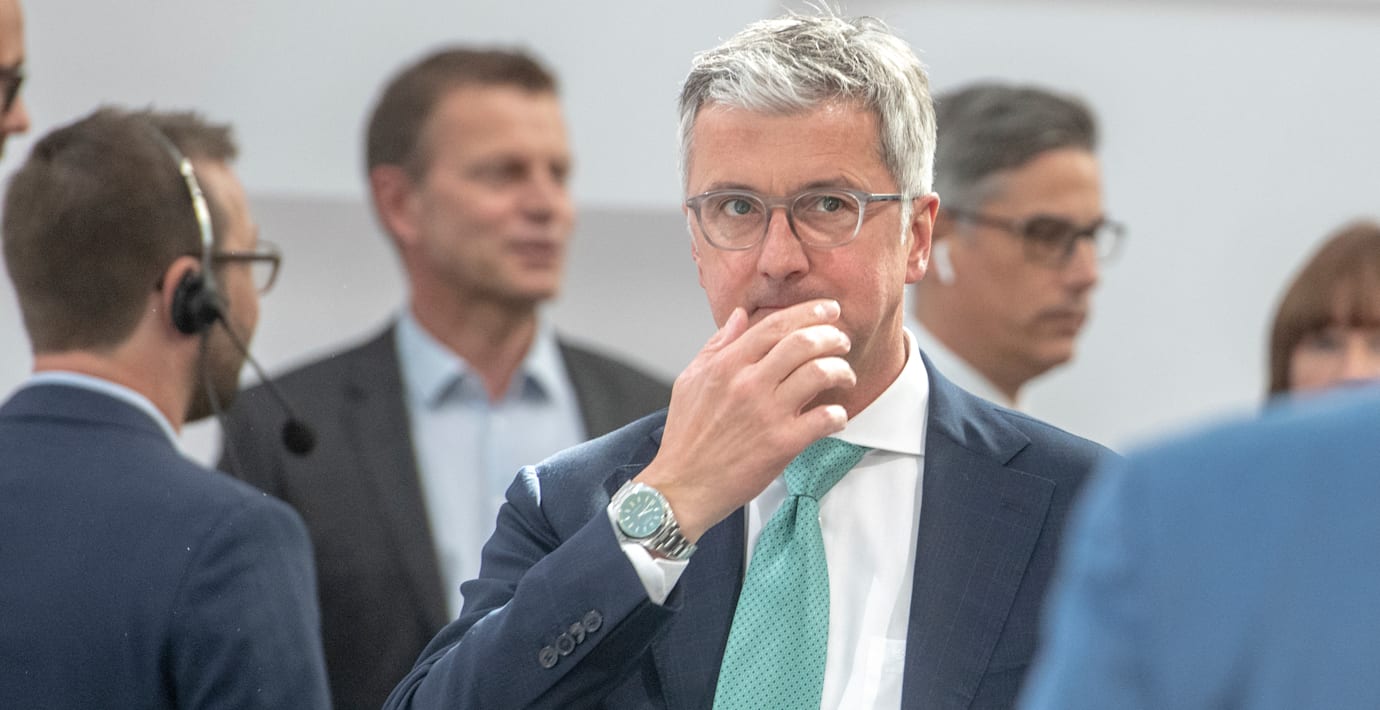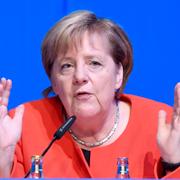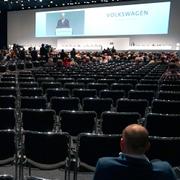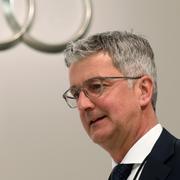
Audis förre vd först ut att åtalas – kan få tio år
Fem år efter att moderbolaget Volkswagen erkände skuld i dieselskandalen blir Audis avgångne vd Rupert Stadler i veckan först ut att ställas inför rätta, skriver AFP.
Ytterligare två Audi-anställda och Porsche-höjdaren Wolfgang Hatz ställs på onsdag inför skranket vid domstolen i München. De åtalade riskerar upp till tio års fängelse.
57-årige Stadler åtalas bland annat för bedrägeri och falsk marknadsföring, men har hela tiden hävdat sin oskuld, skriver AFP.
Intresset för rättegången väntas bli mycket stort, skriver TT.
bakgrund
VW:s utsläppsskandal
Wikipedia (en)
The Volkswagen emissions scandal, also known as Dieselgate or Emissionsgate, began in September 2015, when the United States Environmental Protection Agency (EPA) issued a notice of violation of the Clean Air Act to German automaker Volkswagen Group. The agency had found that Volkswagen had intentionally programmed turbocharged direct injection (TDI) diesel engines to activate their emissions controls only during laboratory emissions testing which caused the vehicles' NO x output to meet US standards during regulatory testing, but emit up to 40 times more NO x in real-world driving. Volkswagen deployed this software in about 11 million cars worldwide, including 500,000 in the United States, in model years 2009 through 2015.In 2014, the California Air Resources Board (CARB) had commissioned a study on emissions discrepancies between European and US models of vehicles from the International Council on Clean Transportation (ICCT), summing up the data from three different sources on 15 vehicles. Among them was a group of five scientists at West Virginia University, who detected additional emissions during live road tests on two out of three diesel cars. ICCT also purchased data from two other sources. The new road testing data and the purchased data were generated using Portable Emissions Measurement Systems (PEMS) developed by multiple individuals in the mid-late 1990s and published in May 2014.Regulators in multiple countries began to investigate Volkswagen, and its stock price fell in value by a third in the days immediately after the news. Volkswagen Group CEO Martin Winterkorn resigned, and the head of brand development Heinz-Jakob Neusser, Audi research and development head Ulrich Hackenberg, and Porsche research and development head Wolfgang Hatz were suspended. Volkswagen announced plans in April 2016 to spend €16.2 billion (US$18.32 billion at April 2016 exchange rates) on rectifying the emissions issues, and planned to refit the affected vehicles as part of a recall campaign. In January 2017, Volkswagen pleaded guilty to criminal charges and signed an agreed Statement of Facts, which drew on the results of an investigation Volkswagen had itself commissioned from US lawyers Jones Day. The statement set out how engineers had developed the defeat devices, because diesel models could not pass US emissions tests without them, and deliberately sought to conceal their use. In April 2017, a US federal judge ordered Volkswagen to pay a $2.8 billion criminal fine for "rigging diesel-powered vehicles to cheat on government emissions tests". The "unprecedented" plea deal formalized the punishment which Volkswagen had agreed to. Winterkorn was charged in the United States with fraud and conspiracy on 3 May 2018. As of 1 June 2020, the scandal had cost VW $33.3 billion in fines, penalties, financial settlements and buyback costs. Various government and civil actions are currently undergoing in the U.S., as well as the European Union, where most of the affected vehicles are located; while they remain legal to drive there, consumers groups and governments seek to make sure Volkswagen has compensated these owners appropriately as they had to do in the United States.
The scandal raised awareness over the higher levels of pollution emitted by all diesel-powered vehicles from a wide range of car makers, which under real-world driving conditions exceeded legal emission limits. A study conducted by ICCT and ADAC showed the biggest deviations from Volvo, Renault, Jeep, Hyundai, Citroën and Fiat, resulting in investigations opening into other diesel emissions scandals. A discussion was sparked on the topic of software-controlled machinery being generally prone to cheating, and a way out would be to open source the software for public scrutiny.
Omni är politiskt obundna och oberoende. Vi strävar efter att ge fler perspektiv på nyheterna. Har du frågor eller synpunkter kring vår rapportering? Kontakta redaktionen


